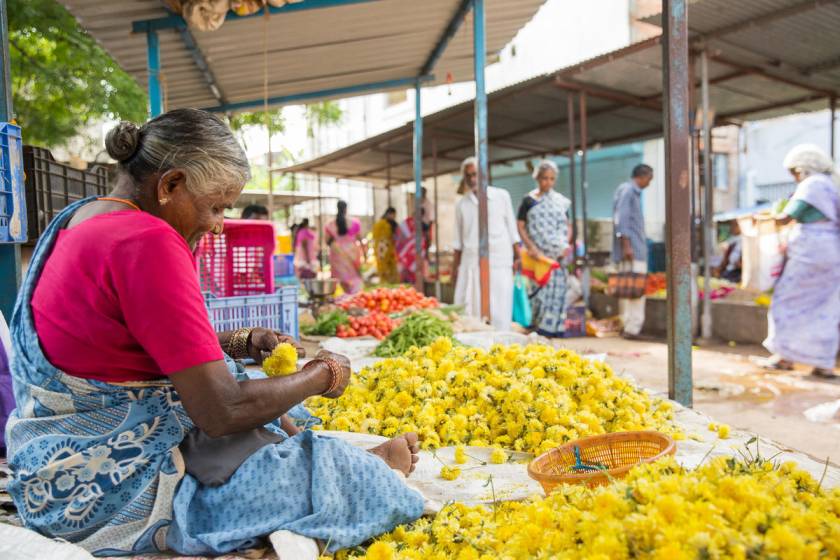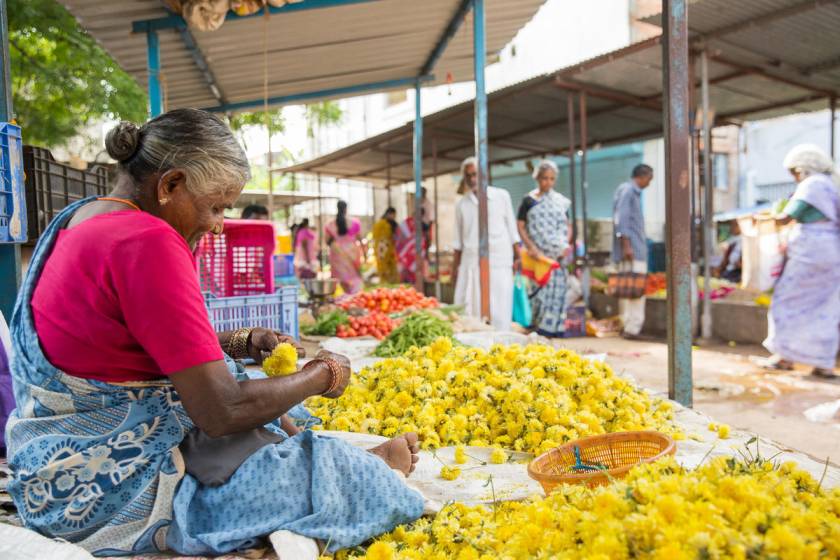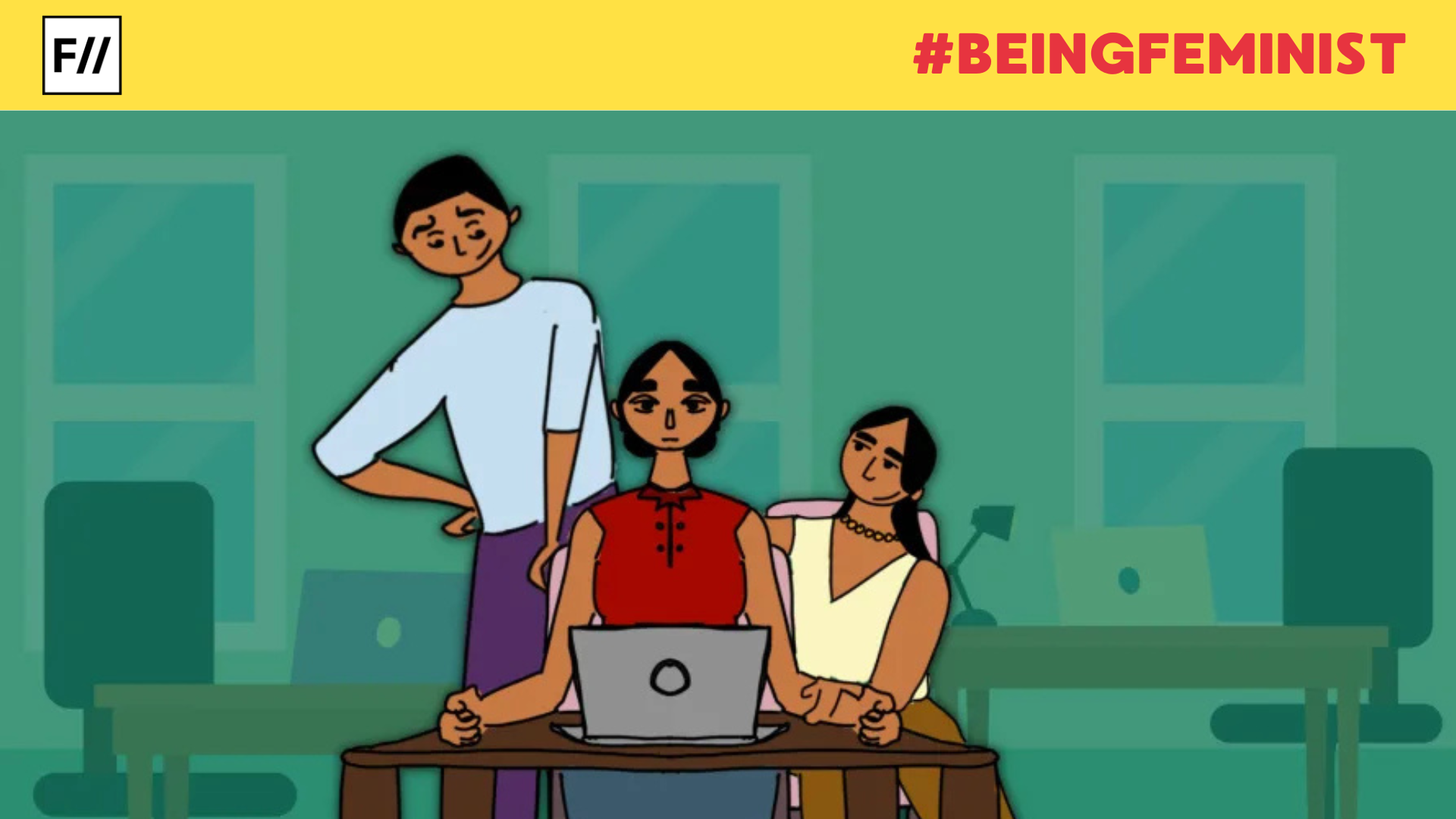In recent months, we have seen an increase in the attention paid to informal workers, both in policy and media circles. Some of these narratives have been positive, recognising the essential nature of informal work—such as in care or waste management—during the crisis. However, there has also been a rise in panic about the supposedly ‘unhygienic’ nature of informal work, with informal workers being singled out as potential carriers of the virus.
These negative narratives that are dismissive of informal work are not new and one of the reasons they persist is because informal work often remains invisible to policymakers. As we already know, while countries are increasingly attempting to measure informal employment as a share of GDP, it often remains excluded from national indicators and economic assessments, such as GDP or employment. Not only does this lead to an underestimation of the actual numbers, it also has other wide-reaching implications, including for poverty and environmental assessments which rely on government statistics. As a result, governments are unable to meet the needs of under-counted and invisible populations.
Critically, and likely as a consequence of some of these wider discourses, informal workers themselves often do not recognise the value of their work and contribution to the economy. In our work at the Self-Employed Women’s Association (SEWA) and the International Centre for Tax and Development (ICTD), we have often seen informal workers—and particularly women—use language that devalues their contribution to both their own households and the national economy.
Women Don’t Value Their Own Work
Women for the most part do not even see themselves as workers, even while shouldering a significant share of household and national economic activities. For instance, female agricultural workers who work on family land frequently identify themselves as housewives, even though the majority of non-harvesting activities are done by them, alongside all livestock care and business. Similarly, home-based workers who bring in close to 40 percent of the family income often do not acknowledge their contribution to the supply chain, and this is compounded by the official lack of recognition of home-based work as a trade.
Even when individuals do see themselves as workers, they discount their own agency and entrepreneurial ability. For instance, informal workers may describe their businesses as something they do just to survive, but not a ‘real’ business. A vegetable vendor who owns their own cart, manages stock and supply, decides pricing and markets, hires employees to support them, and turns in a profit that allows them to scale up and buy another cart on a business loan with their existing cart as collateral is a ‘nano’ business according to official definitions. However, such vendors often see themselves as subsistence workers rather than entrepreneurs. The lack of recognition and respect given to informal work not only shapes international and national policy discourse, but also embeds itself in the mindsets of workers themselves.
Even when individuals do see themselves as workers, they discount their own agency and entrepreneurial ability. For instance, informal workers may describe their businesses as something they do just to survive, but not a ‘real’ business.
The Lack Of Recognition Creates Challenges For Research And Advocacy
The lack of value accorded to informal work by the workers themselves presents particular challenges for doing research on informal employment, and on advocacy with informal workers. Two major ones are:
1. Identifying informal workers
This is the first major challenge for research, since researchers may use language that describes informal employment in a way that does not coincide with how informal workers view themselves and their work. For example, we have observed in our primary research on women microentrepreneurs, that female informal workers are often reluctant to identify their own businesses as such, particularly where businesses operated at a small-scale inside the home. In such instances—such as where women sell drinks from a freezer or home-made snacks from their verandah—research participants are, in our experience, unlikely to consider their income as relevant to the research or within a broader discussion of household well-being. At SEWA, we tackle this non-acknowledgement of self as a worker by:
- Inquiring about their trade in several ways (how do you spend your day, what do you do in the market).
- Asking questions about multiple aspects of the trade to get a more accurate picture of their business and other related details.
It is a process that requires nuance and effort on the part of the researcher.

2. Encouraging informal workers to think about their rights
Building on the first challenge, the second major challenge is engaging informal workers in discussions about their rights and entitlements within society. If informal workers do not view their own businesses as ‘real’ or legitimate, it is possible that they may not feel entitled to the benefits and protections offered to formal workers. Women construction workers for instance are less likely to be registered with construction welfare boards, thus reducing their chances of accessing the benefits due to them. Similarly, street vendors who do not recognise themselves to be microentrepreneurs may not be able to access small business loans they are eligible for.
This Has Key Policy Implications
The relative scarcity of information on informal workers and their behaviour widens many of the existing policy gaps, since it influences how policymakers engage with and recognise informal workers—who make up approximately 60 percent of the global labour force. According to the ILO, in 2018, 88.2 percent of the Indian population was employed in the informal sector.
The relative scarcity of information on informal workers and their behaviour widens many of the existing policy gaps, since it influences how policymakers engage with and recognise informal workers—who make up approximately 60 percent of the global labour force.
First, the absence of detailed knowledge and the prevalence of broad stereotypes means that policy reforms often miscalculate the effects of their announcements on informal workers. This further threatens already marginal livelihoods or leads to unintended results post-implementation. During demonetisation in India, for example, the cash economy that supported the informal economy and micro and small-enterprises was devastated, wiping out years of economic gain for this vast segment of the population. In the same vein, much of monetary policy implementation relies on formal financial institutions, which exclude the informal economy. This is because a high proportion of informal workers lack access to formal financial services, with women being particularly excluded.
Second, where informal work is invisible or stigmatised, policymakers may design programmes that only apply to, or prioritise, ‘formal’ workers. This may be the result of policymakers relying on pre-existing relationships and mediators between states and businesses, such as tax and business registers or chambers of commerce. This was true in pre-COVID-19 times, but is being amplified during the pandemic, where a range of popular relief efforts, such as tax delays and assisted furlough schemes, are specifically targeting formal businesses and workers.
Third, the lack of systematic data collection in the informal economy often leads policies to systematically discriminate against groups that are overrepresented in the informal sector, including women, migrant populations, and ethnic minorities. Migrant women are for instance not included in migration counts in India, as they are considered to be trailing either a father or a husband. Efforts to alleviate the concerns of migrant populations therefore neglect half the population since they weren’t even counted or recognised in the first place.
Also read: Migrant Women Workers On The Road: Largely Invisible And Already Forgotten
What Is The Way Forward?
Given the importance of research in informing policy discussions and emphasising the value of informal employment, we suggest a few ways forward in approaching the challenges to engaging in research and advocacy in this area.
First, it is particularly important for policymakers to rapidly collect data on the informal economy and to integrate this information within a holistic view of the economy and the effects of the current crisis. As noted, when policymakers do not have appropriate data about the effects of the COVID-19 crisis on informal workers, there is the risk that relief efforts will overlook them, further marginalise them, and exacerbate inequalities among sub-populations.
Additionally, there is a need to recognise the heterogeneity of informality at every stage of the research and advocacy processes. Rather than embracing broad statements about the informal economy, efforts should be made to understand its diversity in order to have the greatest impact for informal workers—and particularly the most vulnerable. We need to acknowledge differences that come with variance in regions, languages, trades, state policies, and levels of marginalisation, then tailor research and advocacy to reflect this.
The COVID-19 pandemic has forced us to re-evaluate modalities of work on a global spectrum and that includes how we do research as well as how research contributes to the new global order. It therefore behoves us all to tread deliberately and consciously as we work to empower communities with data and research for their own goals.
Also read: Room To Bleed: Do Domestic Workers Have ‘Period Leaves’ Too?
Paromita Sen of SEWA Bharat contributed to this article.
—
Know more
- Read more about the global impact of COVID-19 on informal sector workers.
- Learn about why we need to invest more in skills development and lifelong learning for informal sector workers.
- Understand how decentralisation can help vulnerable communities participate in their own governance.
Aiman Haque is a research associate in the Research and Data Vertical at SEWA Bharat. Her responsibilities include researching lives and livelihoods of women in the informal sector with a primary focus on women-owned social enterprises within SEWA and more recently, on the effects of the COVID-19 pandemic on female informal workers. She has also been involved in the training of grassroots teams in data collection and the setting up of a grassroot research social enterprise in SEWA.
Max Gallien is a political scientist specialising in the politics of informal and illegal economies, the political economy of development, and the politics of the Middle East and North Africa. He is a research fellow at the Institute of Development Studies (IDS) and the International Centre for Tax and Development (ICTD), where he co-leads the research programme on informality and taxation.
Vanessa van den Boogaard is a political scientist specialising in the politics of taxation and informal taxation, the political economy of development, and conflict and state building processes. She is a research fellow at the International Centre for Tax and Development, where she co-leads the research programme on informality and taxation.
This article was first published on India Development Review and has been republished here with consent.
About the author(s)
India Development Review (IDR) is India's first independent online media and knowledge platform for the development community.



